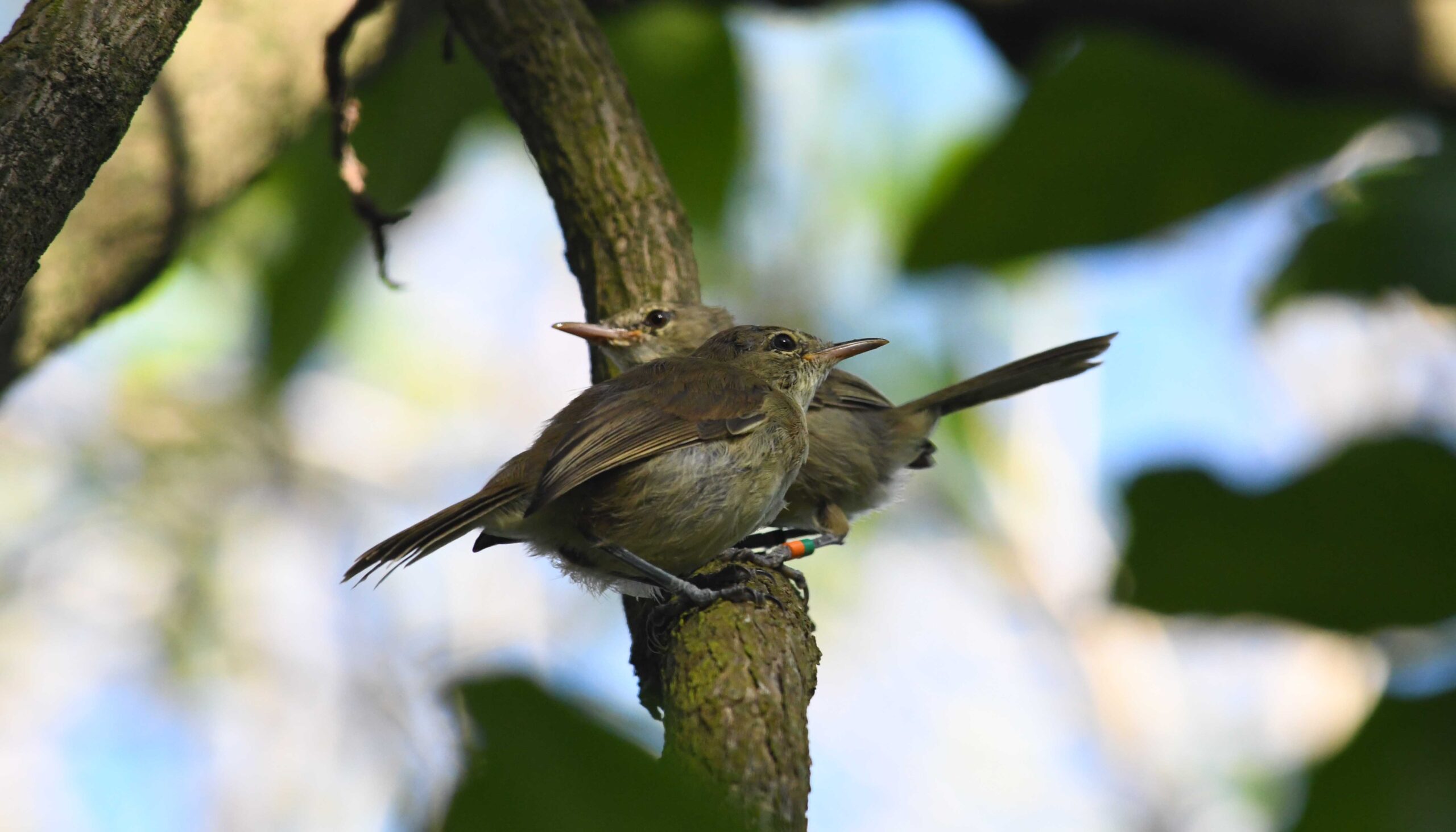A 16-year study on a closed population of Seychelles warblers (Acrocephalus sechellensis) on Cousin Island, Seychelles, has uncovered significant findings about how environmental factors — specifically rainfall — affect the stability of pair bonds in birds.
Macquarie University’s Frigg Speelman was part of an international team of researchers who found that fluctuations in rainfall prior to and during the breeding season significantly influence the likelihood of “divorce” between mates, highlighting the broader implications of climate change for animal reproduction and conservation.
Divorce, in the context of socially monogamous species, refers to the termination of a pair bond while both individuals are still alive. This mating strategy is often associated with poor reproductive success and has been observed in various bird species. However, the relationship between environmental factors, particularly climate fluctuations, and divorce remains poorly understood.
Social monogamy implies that two birds have formed a pair bond and associate with the same partner, usually over many years and even lifetimes. Although pair-bonded birds usually live and raise young together, they are not necessarily sexually monogamous, where they mate with only one partner for life.
“We analysed 16 years of data and found a complex, non-linear relationship between rainfall patterns and divorce rates, with divorce being more likely during years of both low and high rainfall,” said Speelman.
“This relationship was notably influenced by an extreme climatic event — the 1997 El Niño-induced rainfall spike.”
Key Findings:
- Rainfall and divorce: The study identified a quadratic relationship between rainfall and divorce rates, with the highest rates of divorce occurring in years with either extremely low or high rainfall during the breeding season.
- The 1997 El Niño effect: An extreme rainfall event in 1997 was a significant outlier in the data, with exceptionally high rainfall correlating with a sharp increase in divorce rates. When this event was excluded from the analysis, a clearer negative relationship between rainfall and divorce emerged.
- Reproductive success: Despite rainfall impacting divorce rates, the study found no direct link between reproductive success (i.e., the number of offspring produced) and the likelihood of divorce, suggesting that other, as yet unidentified factors may be influencing partnership stability.
Implications for conservation and climate change adaptation
This study which was published in the Journal of Animal Ecology adds to the growing body of evidence showing how environmental factors, particularly those linked to climate change, can directly influence the social dynamics and reproductive strategies of wildlife.
“As climate change intensifies, it is critical to understand how fluctuations in environmental conditions, such as rainfall, affect the stability of socially monogamous species,” said Speelman.
“This research not only enhances our understanding of animal behaviour in the face of climate variability but also provides valuable insights that could inform conservation efforts for species vulnerable to the effects of climate change.”
The Seychelles warbler, a species endemic to the Seychelles islands, is already facing numerous conservation challenges, making this research particularly relevant. The findings suggest that environmental changes could further stress the species’ reproductive success and population stability.
